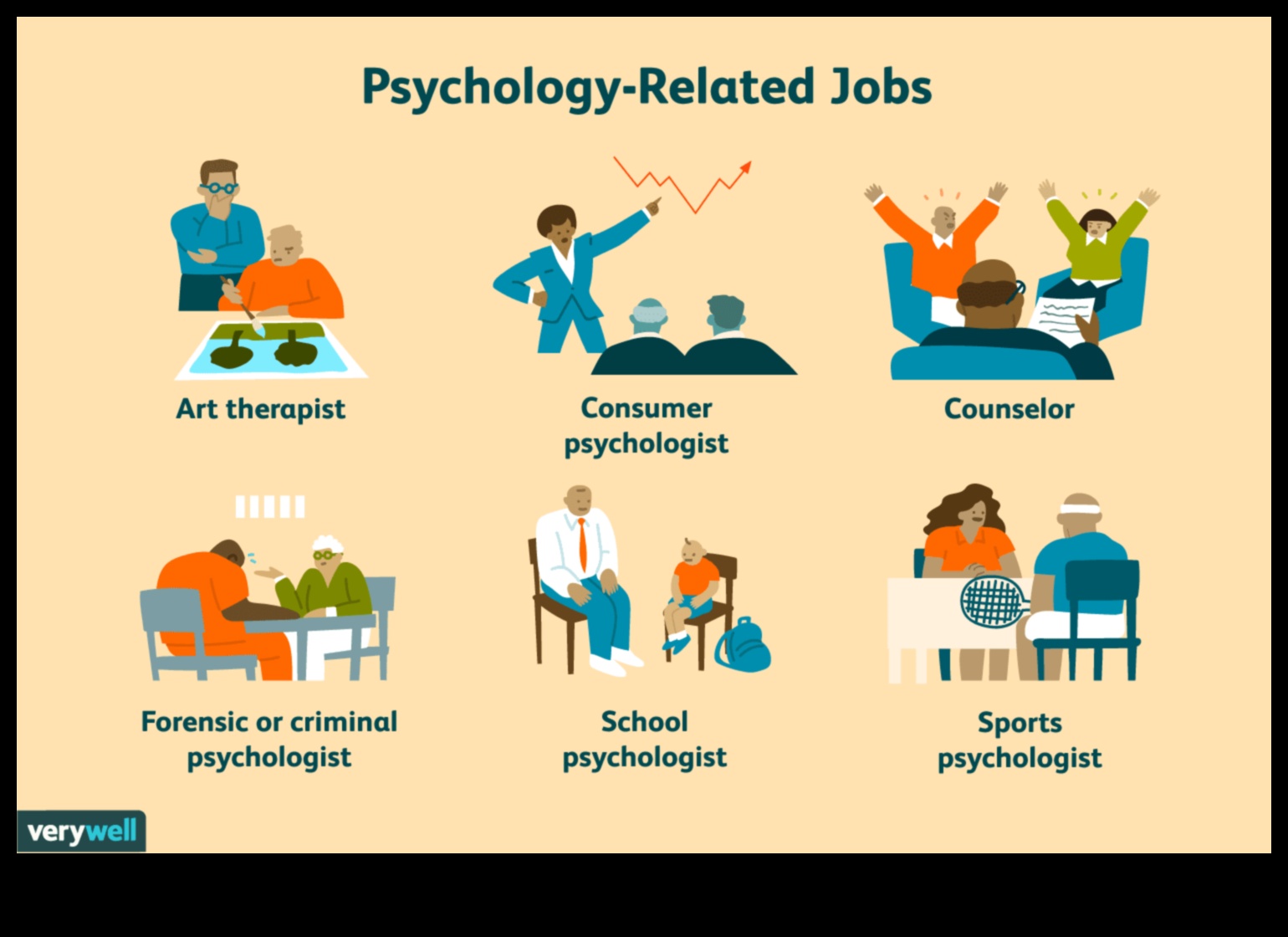
What jobs can I get with a degree in psychology?
People searching for “What jobs can I get with a degree in psychology” are looking for information about the different career options available to them with a psychology degree. They may be interested in learning about the different types of jobs that psychology graduates typically hold, the salary potential for these jobs, and the educational requirements necessary to obtain them. They may also be interested in learning about the different skills and qualities that employers look for in psychology graduates.
In general, people searching for this keyword are looking for information that will help them make informed decisions about their career path. They may be considering a career in psychology and are looking for information to help them decide if this is the right field for them. They may also be psychology graduates who are looking for new job opportunities or who are simply curious about the different career options available to them.
Here are some of the specific problems that people searching for this keyword may be trying to solve:
- What types of jobs can I get with a psychology degree?
- What are the salary prospects for psychology graduates?
- What educational requirements do I need to get a job in psychology?
- What skills and qualities do employers look for in psychology graduates?
- Is a career in psychology right for me?
- What are the different career paths available to psychology graduates?
| Feature | Value |
|---|---|
| Job Title | Psychologist |
| Salary | $68,120 per year |
| Employment Outlook | 14% growth through 2028 |
| Education Requirements | Doctorate in psychology |
| Skills | Critical thinking, problem-solving, communication, empathy |

II. Different Types of Psychology Careers
There are many different types of psychology careers available, each with its own unique set of skills and requirements. Some of the most common psychology careers include:
- Clinical psychologist
- Counselor
- School psychologist
- Industrial-organizational psychologist
- Forensic psychologist
- Research psychologist
- Professor
- Administrator
Each of these careers requires a different set of skills and training, so it is important to choose a career that is a good fit for your interests and abilities.
II. Different Types of Psychology Careers
There are many different types of psychology careers available to psychology graduates. Some of the most common include:
* Clinical psychologist: Clinical psychologists provide mental health services to individuals, couples, and families. They diagnose and treat mental disorders, and help clients cope with life stressors.
* Counseling psychologist: Counseling psychologists help clients resolve personal and interpersonal problems. They provide therapy, support, and guidance to clients of all ages.
* School psychologist: School psychologists work with children and adolescents in school settings. They assess students’ academic and emotional needs, and provide intervention and support to students who are struggling.
* Industrial-organizational psychologist: Industrial-organizational psychologists apply psychological principles to the workplace. They help organizations improve productivity and employee satisfaction.
* Forensic psychologist: Forensic psychologists work with the legal system. They provide expert testimony in court, conduct psychological evaluations of criminal defendants, and help law enforcement agencies solve crimes.
* Health psychologist: Health psychologists work with people who are ill or injured. They help patients cope with the psychological aspects of their illness or injury, and promote healthy behaviors.
* Research psychologist: Research psychologists conduct research on a variety of psychological topics. They publish their findings in academic journals, and share their research with the public.
These are just a few of the many different types of psychology careers available. With a psychology degree, you can find a career that is both rewarding and fulfilling.

II. Different Types of Psychology Careers
There are many different types of psychology careers available to psychology graduates. Some of the most common include:
* Clinical psychologist: Clinical psychologists diagnose and treat mental health disorders. They work with clients in a variety of settings, including private practice, hospitals, and clinics.
* Counseling psychologist: Counseling psychologists provide mental health services to individuals, couples, and families. They work in a variety of settings, including private practice, schools, and hospitals.
* School psychologist: School psychologists work with students in schools to help them learn and develop. They provide assessments, counseling, and interventions to students who are struggling academically or socially.
* Industrial-organizational psychologist: Industrial-organizational psychologists work with businesses to improve employee productivity and satisfaction. They conduct research, develop programs, and provide consulting services to help businesses achieve their goals.
* Forensic psychologist: Forensic psychologists work with the legal system to evaluate and treat criminal defendants and victims. They also provide expert testimony in court.
* Health psychologist: Health psychologists work with patients to improve their physical and mental health. They help patients manage chronic illnesses, cope with stress, and make healthy lifestyle changes.
* Research psychologist: Research psychologists conduct research on a variety of psychological topics. They publish their findings in academic journals and present their research at conferences.
These are just a few of the many different types of psychology careers available. With a psychology degree, you can find a career that is both rewarding and challenging.

V. The Job Outlook for Psychology Careers
The job outlook for psychology careers is generally positive. The Bureau of Labor Statistics projects that employment for psychologists will grow by 14% from 2020 to 2030, faster than the average for all occupations. This growth is expected to be driven by the increasing demand for mental health services, as well as the growing need for psychologists in other fields, such as education, business, and law.
The median annual salary for psychologists was $82,180 in 2020. The top 10% of earners made more than $127,530, while the bottom 10% made less than $47,790.
Psychologists work in a variety of settings, including private practice, hospitals, schools, and government agencies. They may also work in research or academia.
The job outlook for psychology careers is good, but there are a few things to keep in mind. First, the competition for jobs is fierce. Second, the job market can be cyclical, with periods of high demand followed by periods of low demand. Third, the job outlook for psychology careers varies by specialty. For example, the job outlook for clinical psychologists is better than the job outlook for industrial-organizational psychologists.
If you are interested in a career in psychology, it is important to do your research and make sure that you are prepared for the challenges that you may face. You should also have a strong understanding of the different career paths available to psychology graduates.

VI. Salary and Benefits for Psychology Careers
The median annual salary for psychologists was $82,180 in May 2020. The top 10% of earners made more than $122,870, while the bottom 10% earned less than $48,660.
Salary varies depending on the type of job, level of experience, and geographic location. Psychologists who work in private practice typically earn more than those who work in other settings, such as hospitals, clinics, and schools. Psychologists who have more experience also tend to earn more.
Psychologists who work in urban areas typically earn more than those who work in rural areas.
The following table provides a more detailed look at the median annual salary for psychologists by type of job, level of experience, and geographic location.
| Type of Job | Median Annual Salary |
|---|---|
| Private Practice | $97,550 |
| Hospital | $82,810 |
| Clinic | $79,340 |
| School | $76,610 |
In addition to their salary, psychologists may also receive benefits such as health insurance, retirement plans, and paid time off. The specific benefits offered by an employer will vary.
VII. Work Environment for Psychology Careers
The work environment for psychology careers can vary depending on the specific job title and setting. For example, psychologists who work in private practice typically have their own offices and work independently. Psychologists who work in hospitals or clinics may share an office with other professionals and work closely with other members of the healthcare team. Psychologists who work in schools or other educational settings may work in classrooms or offices and interact with students, teachers, and other staff members.
The work environment for psychology careers can also be affected by the size of the organization. Psychologists who work in small organizations may have more autonomy and flexibility in their work, while psychologists who work in large organizations may have more structure and oversight.
Overall, the work environment for psychology careers can be both challenging and rewarding. Psychologists have the opportunity to help people improve their lives and make a positive impact on the world. However, the work can also be demanding, and psychologists may need to work long hours and deal with difficult emotions.
Pros and Cons of Psychology Careers
There are many different pros and cons to consider when choosing a career in psychology. Some of the potential benefits of a psychology career include:
- The opportunity to help people
- A variety of career options
- Good job prospects
- High salary potential
- A stimulating and challenging work environment
However, there are also some potential drawbacks to consider, such as:
- The need for advanced education
- The potential for burnout
- The challenges of working with people who are struggling with mental health issues
Ultimately, the decision of whether or not to pursue a career in psychology is a personal one. It is important to weigh the pros and cons carefully in order to make the best decision for yourself.
IX. How to Get Started in a Psychology Career
There are a few things you can do to get started in a psychology career.
First, you need to get the necessary education. This typically includes a bachelor’s degree in psychology, although some jobs may require a master’s or doctoral degree.
Once you have the necessary education, you need to start gaining experience. This can be done by volunteering, getting an internship, or working part-time in a psychology-related job.
You also need to develop your skills and knowledge. This can be done by taking continuing education courses, attending workshops, and reading professional journals.
Finally, you need to network with other professionals in your field. This can be done by attending professional conferences, joining professional organizations, and reaching out to people you know who work in psychology.
By following these steps, you can increase your chances of getting a job in psychology.
FAQ
Q: What types of jobs can I get with a psychology degree?
A: There are many different types of jobs that you can get with a psychology degree. Some of the most common include:
- Psychologist
- Counselor
- Social worker
- Teacher
- Market researcher
- HR manager
Q: What are the salary prospects for psychology graduates?
The salary prospects for psychology graduates vary depending on the specific job you get. However, the median annual salary for psychologists is $79,010, according to the Bureau of Labor Statistics.
Q: What educational requirements do I need to get a job in psychology?
Most jobs in psychology require a master’s degree or higher. However, some entry-level positions may be available to those with a bachelor’s degree in psychology.